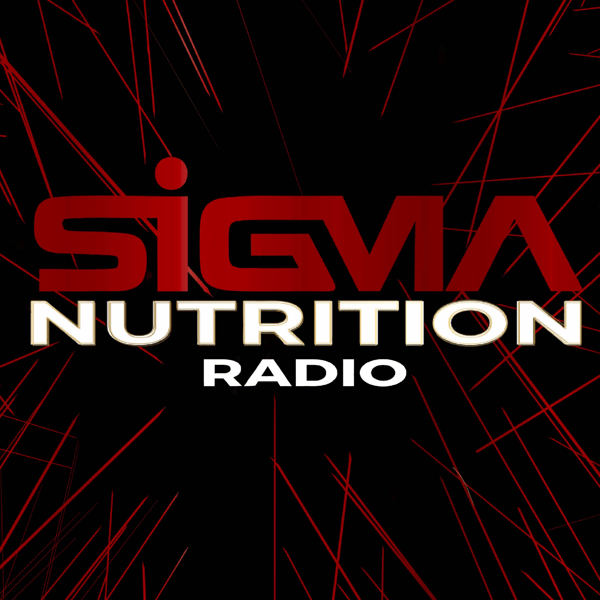#541: Lean Mass Hyper Responders & the Lipid Energy Model: Do the Claims Stand Up to Scrutiny?
Sigma Nutrition Radio
Danny Lennon
4.8 • 626 Ratings
🗓️ 5 November 2024
⏱️ 90 minutes
🧾️ Download transcript
Summary
When discussing cardiovascular health, few topics stir as much debate as cholesterol, particularly in relation to low-carb and ketogenic diets. Recently, there’s been significant attention given to a proposed model that suggests high LDL cholesterol may not pose the same cardiovascular risk in certain individuals, specifically those labeled as “lean mass hyper-responders.” This raises important questions: Is it possible that high cholesterol might not be dangerous for everyone? Or are we witnessing a dangerous misinterpretation of the science?
In this episode, we break down the ideas behind the “lipid energy model” and explore how it has been framed in the context of low-carbohydrate and ketogenic diets. While proponents claim this model sheds light on how some people can have elevated LDL without increasing heart disease risk, critics warn that miscommunication and oversimplification of these ideas are leading many down a dangerous path. With real-world health decisions hanging in the balance, it’s crucial to carefully examine what the science truly says about cholesterol, inflammation, and heart disease.
Join us as we dive into the evidence with Dr. Gary McGowan. We’ll dissect what the current research supports, what remains speculative, and how social media has amplified both the promising and problematic aspects of this model. If you’ve ever wondered about the impact of high cholesterol on heart disease risk in the context of ketogenic or low-carb diets, this episode is essential listening.
Timestamps
- 02:27 What are the “Lean Mass Hyper Responder” phenotype and the “Lipid Energy Model”
- 27:29 Looking at recent publications and the “KETO Trial”
- 47:06 Public communication and misinterpretation
- 51:18 Clinical implications of diet-induced dyslipidemia
- 55:14 Responsibility in scientific communication
- 57:30 Real-world examples of poor communication or misinterpretation
- 01:13:27 Ethical concerns with the promotion of the model
- 01:25:59 Final thoughts
Related Resources
- Go to episode page
- Join the Sigma email newsletter for free
- Subscribe to Sigma Nutrition Premium
- Enroll in the next cohort of our Applied Nutrition Literacy course
- Find Dr. McGowan at:
- Papers discussed in this episode:
- Norwitz et al., 2022 – The Lipid Energy Model: Reimagining Lipoprotein Function in the Context of Carbohydrate-Restricted Diets
- Norwitz et al., 2021 – Elevated LDL Cholesterol with a Carbohydrate-Restricted Diet: Evidence for a “Lean Mass Hyper-Responder” Phenotype
- KETO Trial: Budoff et al., 2024 – Carbohydrate Restriction-Induced Elevations in LDL-Cholesterol and Atherosclerosis
Transcript
Click on a timestamp to play from that location
| 0:00.0 | This is just a quick message to say that if you do enjoy listening to this podcast and wish to |
| 0:05.0 | use it as a real learning tool, then our premium subscription, Sigma Nutrition Premium, might be |
| 0:10.2 | something for you. So what is it? In short, you get detailed study notes for each podcast episode, |
| 0:16.2 | you get extra premium exclusive episodes, you get full episode transcripts, and some other cool features. |
| 0:23.5 | And of course, this is the sole direct way to support our work. So as we don't run ads, |
| 0:28.0 | we rely on you, our regular loyal listeners. So for full details, check the link in the description |
| 0:35.0 | box wherever you're currently listening or simply just go to |
| 0:38.1 | sigmautrition.com. Now on to today's episode. |
| 0:59.8 | Hello and welcome to another episode of Sigma Nutrition Radio. This is episode 541 of the podcast. I'm Danny Lennon and of course alongside me is Dr. Alan Flanagan. We're |
| 1:07.3 | going to be talking with Dr. Gary McGowan. Gary, welcome to the podcast. |
| 1:12.1 | Thank you very much. Glad to be here. For people listening before we get started into anything |
| 1:15.7 | else, can you give people an introduction to your background, to your current work you're doing, |
| 1:20.6 | and anything else that you think might be relevant before we get into the topic for today? |
| 1:25.4 | Of course. So my background is in personal training, |
| 1:28.1 | nutrition coaching, very much in the fitness industry. That's where I've come from. But over the |
| 1:32.3 | years, managed to make a way through some additional education in physiotherapy first and then |
| 1:37.5 | medicine. So now I'm working as a medical doctor and also doing my MSC in preventive cardiology. So I'm in my general training years |
| 1:46.6 | in medicine, but I have a particular interest in cardiology, lipids, and the intersection between |
| 1:51.7 | nutrition and medicine there, hence the MSC and hence also why I hope to go down on the pathway of |
| 1:57.3 | cardiology in future. So very much a topic of interest. I'll love to discuss |
| 2:01.0 | this and happy to be here with both of you today. Of course, the topic in particular we're going |
| 2:05.2 | to look at is something I'm sure many listeners may have came across, at least in some manner. |
... |
Please login to see the full transcript.
Disclaimer: The podcast and artwork embedded on this page are from Danny Lennon, and are the property of its owner and not affiliated with or endorsed by Tapesearch.
Generated transcripts are the property of Danny Lennon and are distributed freely under the Fair Use doctrine. Transcripts generated by Tapesearch are not guaranteed to be accurate.
Copyright © Tapesearch 2025.

